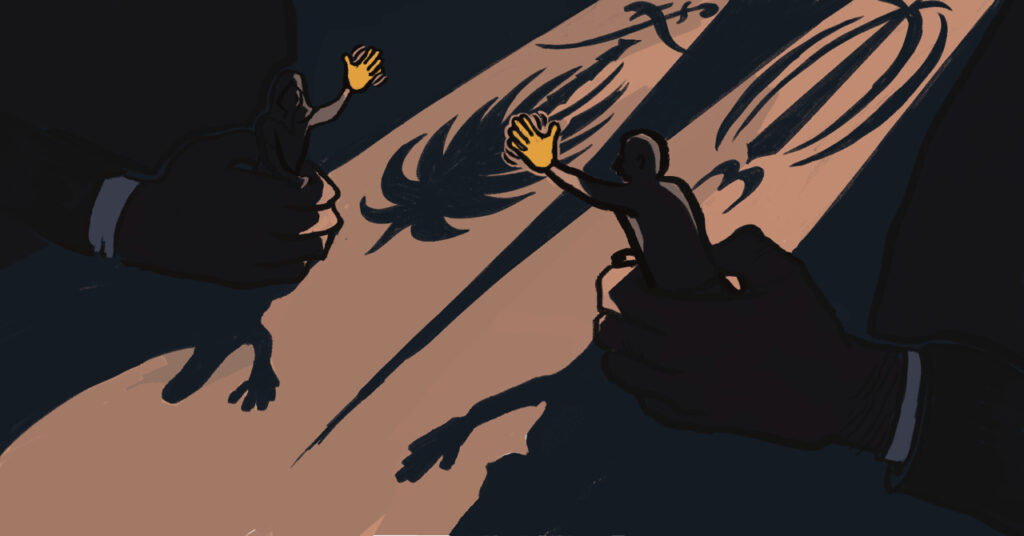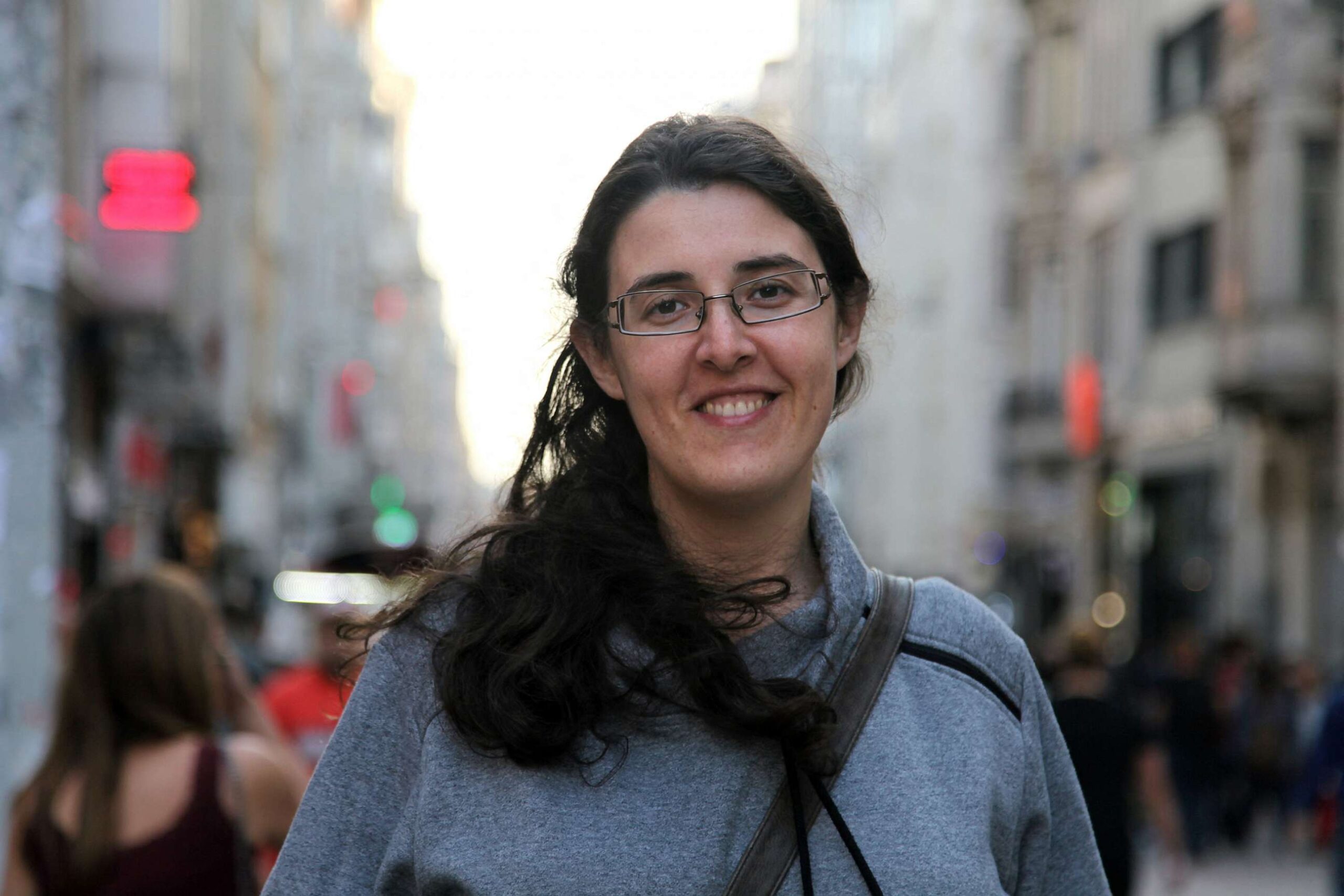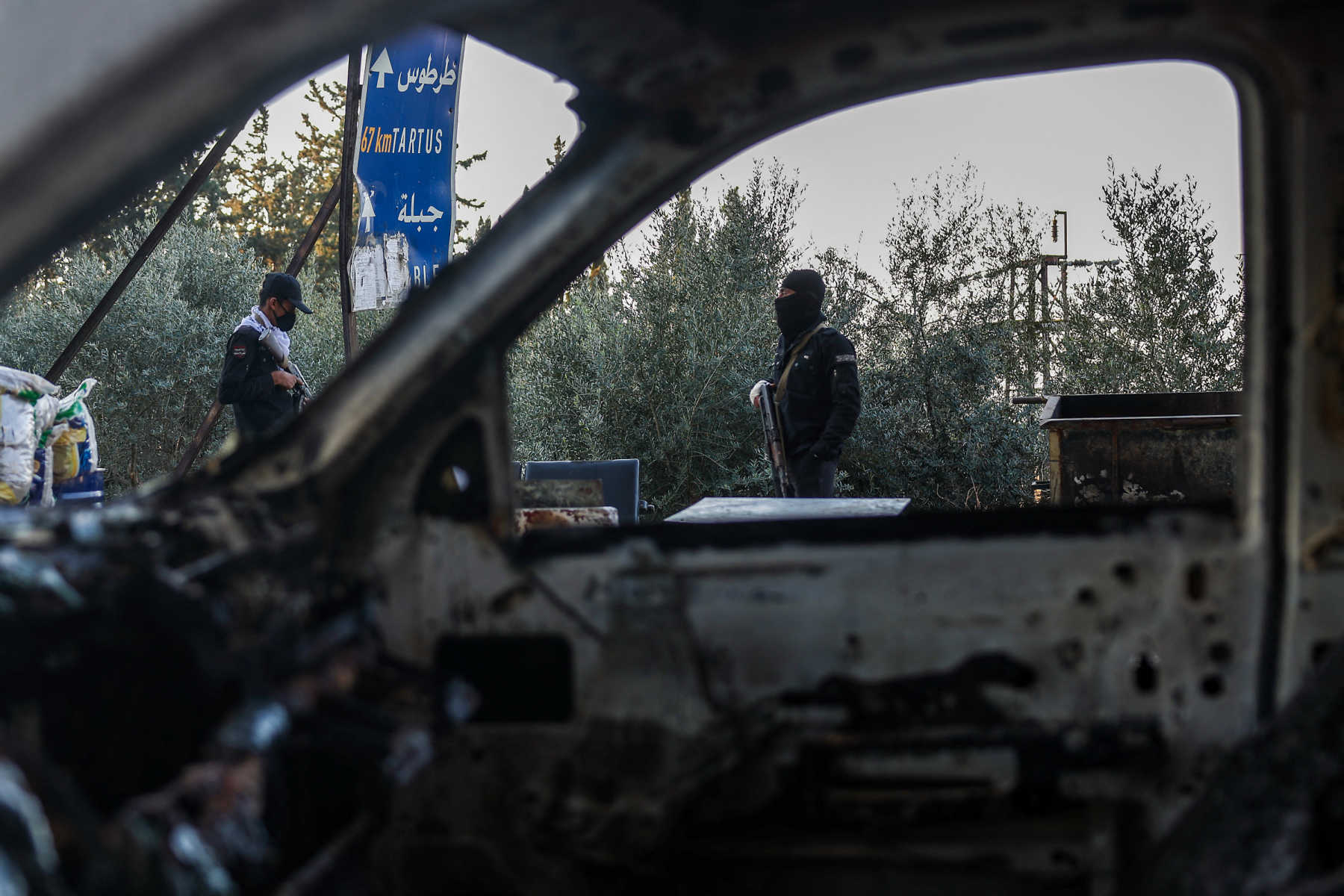Frederick Deknatel is the Executive Editor of Democracy in Exile, the DAWN journal.
عربي
It began in April, when Saudi and Iranian officials met for direct talks in Baghdad, which were only disclosed after the fact. That nascent dialogue has since crawled along, with Iran confirming publicly in May that it was in talks with its archrival, Saudi Arabia. "De-escalation of tensions between the two Muslim countries in the Persian Gulf region is in the interest of both nations and the region," an Iranian Foreign Ministry spokesman declared. Even Mohammed bin Salman—one of the main drivers of this rivalry in recent years, since he became the crown prince of Saudi Arabia—has cooled his tone, claiming in an interview on Saudi state television in late April that Riyadh hoped to "build a good and positive relationship with Iran that would benefit all parties," while still criticizing Iran's "negative behaviors."
The latest meeting in this possible détente was again hosted by the Iraqi government in Baghdad, in late August, and included both the Saudi and Iranian foreign ministers. Another round of talks is now set to follow, according to Tehran, once Iran's new president, Ebrahim Raisi, forms his government.
Although they formally cut diplomatic ties in 2016, Saudi Arabia and Iran have been enemies for decades, ever since Iran's Islamic revolution in 1979. Their cold war has stoked conflicts and proxy wars across the Middle East, from Yemen to Syria and Lebanon. So any dialogue is good news. As Joost Hiltermann of the International Crisis Group wrote for Democracy in Exile in May, "The greatest risk of outright confrontation comes from the lack of adequate communication between both sides of the Gulf."
But as their governments soften their rhetoric and shift to the language of cautious diplomacy, where would this engagement leave Saudi and Iranian citizens themselves?
Back in June, against the backdrop of a possible reduction in regional tensions, DAWN hosted a discussion on Clubhouse, the audio-only social networking app, that brought together Saudi and Iranian civil society leaders, political exiles and other dissidents. They shared their stories of political activism and persecution at home, and debated what the diplomatic talks between their governments might mean for them, and for the wider region. Moderated by Omid Memarian, DAWN's communications director, the Clubhouse conversation was a rare opportunity for Saudis and Iranians to speak directly to each other, and to discuss the similar challenges they face—most of all, abusive governments that harshly persecute political activists and try to stamp out any kind of civil society.
What follows are excerpted highlights of that Clubhouse discussion, which also included members of DAWN's staff and other human rights advocates and researchers.
*
Abdullah Alaoudh, the Gulf research director at DAWN, whose father, Salman Aloudah, has been jailed in Saudi Arabia since 2017.
"We're not here to eliminate the natural difference between interpretations of religion, or interpretation of politics, or interpretation of anything. It's the politicization of these differences that harm both of us. It makes more sense to have a relationship between the two peoples, versus between the two states that we know would depend on governments that only have their own self interest in mind."
*
Lina al-Hathloul, a Saudi women's rights activist who lives in Belgium, and the sister of Loujain al-Hathloul, who was arrested and tortured for advocating for the right to drive in the kingdom.
"Silence really doesn't work. Iranian people are suffering just as much as we are in Saudi Arabia, and I think the only thing we can do to stop injustices and repression and to scare our oppressors is to speak up. Both of these regimes are happy about the silence and people not being able to cross the red line that they have imposed, so that we cannot talk about each other. Iran and Saudi Arabia have that in common: They are treating their own people as the enemy. So, we have to gather and stand in solidarity."
"There's only one narrative that the people of Saudi Arabia are allowed to follow. Of course, you will hear the people that are against the Iranian people. When people who disagree cannot voice their opinion, it creates a normalization of hatred, and that's why I think we can change this now that there is a Saudi diaspora outside of the country. I agree that there are differences, and a war between Saudi Arabia and Iran, but I want to say that the more we talk about the differences, the more we fuel them. There are no spaces where we can talk about how close and similar we are. Every time we put people together regarding Iran and Saudi Arabia, it's to describe how much they hate each other—never about how we can change things together."
"Iranian people are suffering just as much as we are in Saudi Arabia, and I think the only thing we can do to stop injustices and repression and to scare our oppressors is to speak up."
- Lina al-Hathloul
"Within Saudi Arabia, many people agree now—and we see it with the National Assembly Party—that all we want is to be able to choose what we want inside of the country. It's just a path toward a constitution or a kind of democracy. We don't want to impose what we will choose once we are allowed to choose, but we just want to have this freedom of choosing."
*
Sarah Leah Whitson, DAWN's executive director.
"We want to bring these combined civil society voices to the doors of American policymakers. We have a lot of time to make up for, we have a lot of learning to do from each other—and this applies to many divided communities around the world. But this particular divide has huge ramifications. The hostility between these two countries has been the justification for so much violence throughout the region."
"Our group right here, however many people we have, I'm certain, is more than any government discussion that has ever taken place inside Saudi Arabia about Iran, or inside Iran about Saudi Arabia. So, if you're at all self-conscious about being representative of your societies, keep in mind that our dialogue is exponentially more diverse and numerically larger than a conversation between two or three decision-makers in Iran or Saudi Arabia on matters of policy for each other's countries. This space is a counterweight to the rhetoric and propaganda that each of these governments are drowning people with and are drowning American policymakers with."
*
Tara Sepehri Far, Iran researcher at Human Rights Watch.
"We should welcome de-escalation of tensions, but the threat is that if the de-escalation of tension happens without the participation of civil society actors, it might not necessarily benefit the two societies. Civil society dialogue should actually start with listening and hearing stories from the two communities that have been divided by geopolitical reasons, before drawing parallels and differences and joining forces to push back against increasing repression in both Iran and Saudi Arabia. It's extremely important for us to first pause and hear the stories and lived experience of resilience of these two societies that are fighting repression with, maybe similar, and maybe different techniques. From there, I think we could actually start building a perspective of the challenges and where we could help lift each other up in the struggle. Because, for so long, we have actually not heard that in mainstream media in these respective countries."
*
Sussan Tahmasebi, the director of Femena, which supports women's organizations and feminist movements across the Middle East and North Africa.
"Governments mending their relations without the voices and input of the people could result in an even more repressive government. I want to second what Tara and others said in recognizing differences. On a positive note, among Iranians, especially over the last few years, there is increased interest, especially in the women's movement. There is this incredible interest and thirst for connecting with their counterparts in the region. The Iranian women activists in the region followed Loujain's case really closely, and really identified with her—and were extremely happy with her release. I take that as a positive sign."
*

Mani Mostofi, the director of Miann Group, a human rights organization that focuses on digital security in the Middle East.
"It's undeniable that the regional tensions lead to human rights abuses in the two countries. This is usually along sectarian lines. We should be concerned with this because as we've seen in other areas in the region, it is these sectarian divides that have the greatest potential to lead to human rights abuses on a mass violence scale, especially as governments and regional politics get more polarized. This is related to the treatment of Sunnis in Iran and Shia in Saudi Arabia, which seems somewhat parallel."
"We want states to be applying a universalist human rights lens to dealing with social disputes between different identity groups and communities, as opposed to politicized lenses that can flare up in unspeakable violence. This underscores the purpose of this conversation, where the more we can shift these conversations, including conversations about minority rights, away from regional and sectarian politics and work toward universal values and universal forms of legal human rights protection, I think we are doing a greater service to people on the ground. And that's really going to come from cross-regional discussion from Saudi and Iranian human rights defenders. That's the challenge that we have: How do we get to a place where we can depoliticize these issues?"
*
Drewery Dyke, senior research fellow at the Foreign Policy Centre in London, and a former Gulf researcher at Amnesty International.
"The people that are here now, we're not many, we can't command an army, but I think we're on the cusp of being able to drive the discourse. And that discourse means crossing borders and opening eyes and building understanding and legitimacy of what we're about, and showing the—dare I say—illegitimacy and lack of representation of those authorities in those regions."
*
Sahar, a U.N. aid worker who is only identified by her first name to protect her identity.
"What I know, from all these 14 years [working as an aid worker for the United Nations], is that unless people don't start being exposed to each other, this alienation will keep fueling the politics, and the politics will keep fueling it, both ways. The major change in the region will only happen if this enlightenment in the communities and exchange between them happens. If that doesn't happen, we won't have change and these conflicts within the religion will keep happening."
*
Mohanid, only identified by his first name to protect his identity.
"There are so many issues we can work on; it's not only human rights. There are environmental issues, which basically affect the entire region. Iran's poor management of water resources has a dire impact on Iraq. Iraq's poor management of water resources has a dire impact on Iran. The region is so connected in terms of issues which affect every citizen, whether they're on this side of the Persian Gulf or the other—it doesn't really matter."
*
"It's wonderful that Iran and Saudi Arabia are talking today—any reduction in tension is good for the region. But let's not have any fantasies about what recent dialogue is all about."
- Nader Hashemi
Yasser, only identified by his first name to protect his identity.
"It's important to identify objectives from this dialogue, in consideration of these differences between the two diasporas. Another challenge is: What is the agenda? I have a lot of Iranian friends and we discuss and we talk, and it's very clear that the agendas on both sides are quite different. Even within the Iranian diaspora, we've got people who are against the system completely—some of them want to diversify and break down Iran into small countries. And, for the Saudis, it's the same issue. What is the objective of the Saudi diaspora, in terms of having one opinion regarding reform? What are our objectives? What is a common ground?"
*
Jawa, only identified by her first name to protect her identity.
"There is value in going into very specific topics and finding stakeholders and interlocutors to discuss these things. In times of political tensions, we all have to prepare a long laundry list of concrete ideas and initiatives, so that if one day political leaders come to the conclusion that they should try reconciliation, it can be presented to them to make it as easy and convenient as possible—to translate a cautious political will into concrete, socially embedded action. Ultimately, societies of both countries—and that's the value of your discussion today—have to carry any attempt by political leaders to seek rapprochement."
*
Mohammad Manzarpour, a British-Iranian television journalist and the former executive editor of Voice of America Persian News Network.
"I think the way around a tectonic clash is to engage people-to-people connections and to diffuse rhetoric that is being pumped out on both sides. But, I have to say this: There is not as much anti-Saudi rhetoric being pumped out of Iran as there is anti-Iranian rhetoric being pumped out of Saudi Arabia. We don't necessarily have to be fair in our criticism, and have the same quality and quantity of criticism against each regime. Each regime has its own modus operandi. They're not similar; they are different in how they suppress public opinion and their critics."
*
Nader Hashemi, an associate professor and the director of the Center for Middle East Studies at the University of Denver, and a DAWN fellow.
"It's wonderful that Iran and Saudi Arabia are talking today—any reduction in tension is good for the region. But let's not have any fantasies about what recent dialogue is all about. First of all, it's happening because there's a new person in the White House and MBS wants to maintain good relations with the U.S., so he's agreed to talk to the Iranian government. If in four years, Trump gets reelected, Saudi-Iranian discussion would disappear as quick as it appeared. And, let's not forget that these two regimes are talking about their own regional interests and primarily pursuing the interests of the ruling elites. They're not interested in what we're interested in."
![]()
















![Security forces loyal to the interim Syrian government stand guard at a checkpoint previously held by supporters of deposed president Bashar al-Assad, in the town of Hmeimim, in the coastal province of Latakia, on March 11, 2025. Syria's new authorities announced on March 10, the end of an operation against loyalists of deposed president Bashar al-Assad, after a war monitor reported more than 1,000 civilians killed in the worst violence since his overthrow. The Syrian Observatory for Human Rights said the overwhelming majority of the 1,068 civilians killed since March 6, were members of the Alawite minority who were executed by the security forces or allied groups. (Photo by OMAR HAJ KADOUR / AFP) / “The erroneous mention[s] appearing in the metadata of this photo by OMAR HAJ KADOUR has been modified in AFP systems in the following manner: [Hmeimim] instead of [Ayn Shiqaq]. Please immediately remove the erroneous mention[s] from all your online services and delete it (them) from your servers. If you have been authorized by AFP to distribute it (them) to third parties, please ensure that the same actions are carried out by them. Failure to promptly comply with these instructions will entail liability on your part for any continued or post notification usage. Therefore we thank you very much for all your attention and prompt action. We are sorry for the inconvenience this notification may cause and remain at your disposal for any further information you may require.”](https://dawnmena.org/wp-content/uploads/2025/04/syria-22039885951-350x250.jpg)










![Security forces loyal to the interim Syrian government stand guard at a checkpoint previously held by supporters of deposed president Bashar al-Assad, in the town of Hmeimim, in the coastal province of Latakia, on March 11, 2025. Syria's new authorities announced on March 10, the end of an operation against loyalists of deposed president Bashar al-Assad, after a war monitor reported more than 1,000 civilians killed in the worst violence since his overthrow. The Syrian Observatory for Human Rights said the overwhelming majority of the 1,068 civilians killed since March 6, were members of the Alawite minority who were executed by the security forces or allied groups. (Photo by OMAR HAJ KADOUR / AFP) / “The erroneous mention[s] appearing in the metadata of this photo by OMAR HAJ KADOUR has been modified in AFP systems in the following manner: [Hmeimim] instead of [Ayn Shiqaq]. Please immediately remove the erroneous mention[s] from all your online services and delete it (them) from your servers. If you have been authorized by AFP to distribute it (them) to third parties, please ensure that the same actions are carried out by them. Failure to promptly comply with these instructions will entail liability on your part for any continued or post notification usage. Therefore we thank you very much for all your attention and prompt action. We are sorry for the inconvenience this notification may cause and remain at your disposal for any further information you may require.”](https://dawnmena.org/wp-content/uploads/2025/04/syria-22039885951-360x180.jpg)









